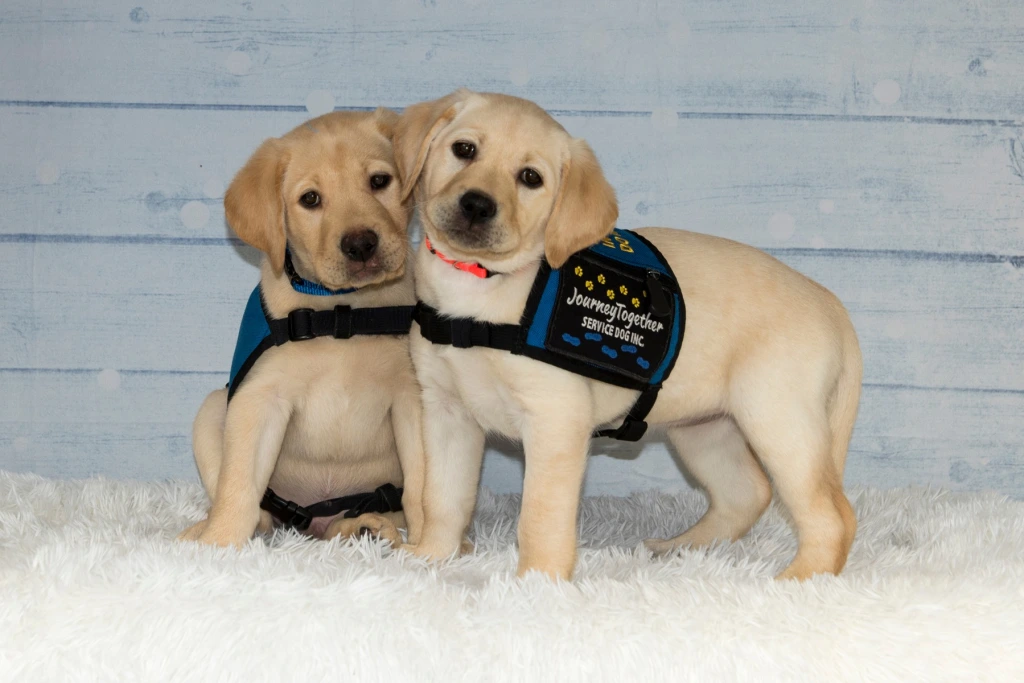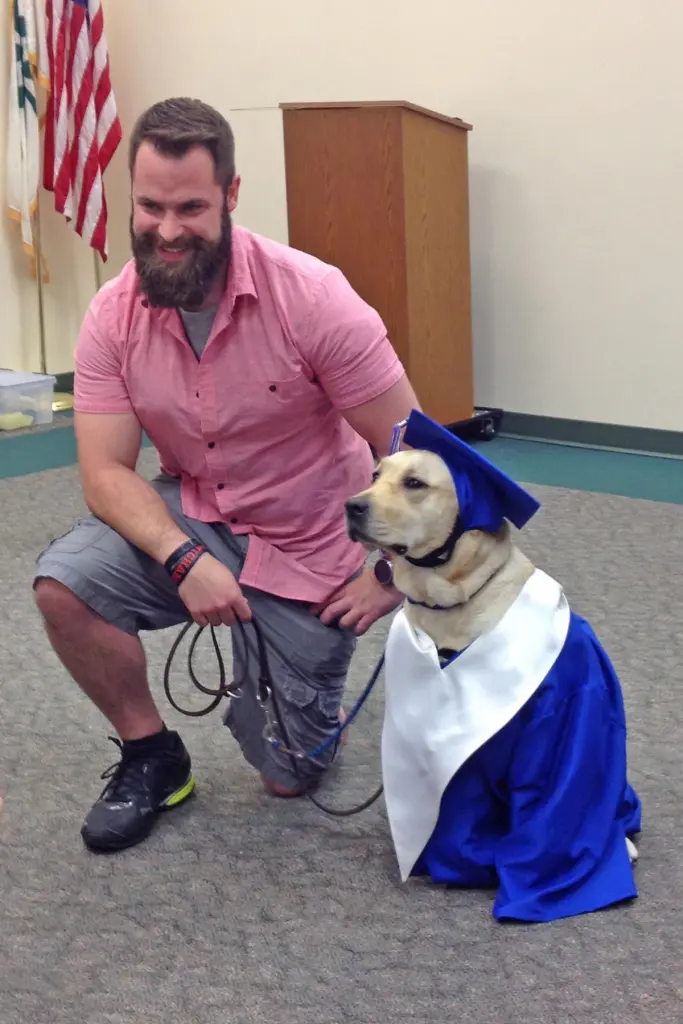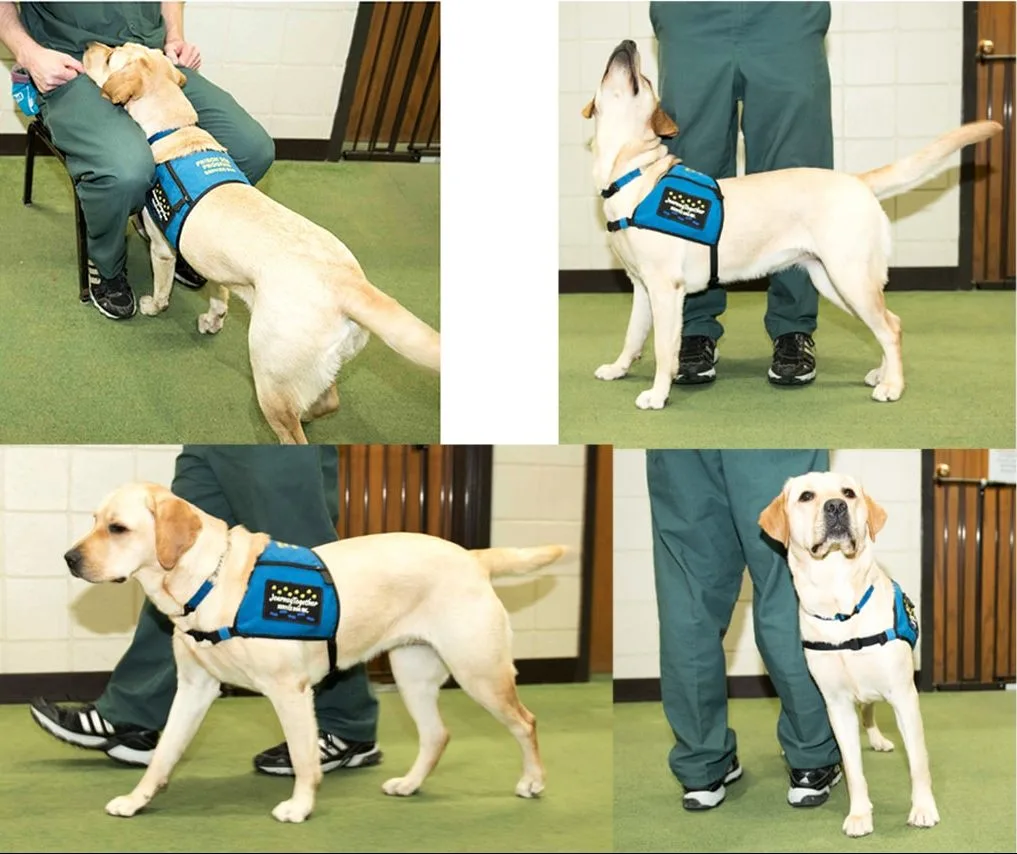The Wisconsin Department of Corrections Oshkosh Correctional Institution has seen positive results from a program partnering with the Journey Together Service Dog Inc. It uses incarcerated volunteers to train dogs to become service animals for people with post-traumatic stress disorder (PTSD).
Started in 2012 with a partnership with Occupaws Guide Dog Association, the program not only helps people on the outside adjust to life after tragedy but also gives the incarcerated a second chance at life through work with animals. The current collaboration with Journey Together started in 2015.
In many cases, the dogs work with veterans or crime victims. They are also used in schools, police departments, and domestic abuse centers, where they reduce stress for PTSD clients.

“I love being able to give something back to the community that we took from,” said Aaron Smith, who is incarcerated at Oshkosh. “That we all did these bad things in the past, being able to do some positive for it.”
“You got a dog to take care of; you have another being to take care of,” he continued. “You’ve got to kind of put yourself aside, the different things you may be dealing with, and focus on them and their well-being.”

About a dozen dogs are paired with more than 40 incarcerated volunteers, rotating through each over several months. In total, the canines receive two years of training before they graduate and are matched with a client.
That training includes teaching the dog behaviors that lessen the trauma associated with triggering events. They may also learn how to open doors and turn switches on and off. Some are given the skills to look out for their companion.
Additionally, the trainers teach the dogs to provide an actual physical barrier between their client/partner and the public, which is shown to reduce stress.
This behavior is particularly effective in court, where canines can legally serve as an “unbiased companion” for witnesses. A program graduate, Sergeant Pepper, was placed with the Waukesha District Attorney and helped victims of the Waukesha Christmas Parade tragedy during court hearings.

The program was originally created to connect the prison with the surrounding community. However, it has unexpectedly reduced the rates at which the formally incarcerated end up back behind bars.
“How do you survive in a prison? You do what you’re told, exactly what you’re told, no more, no less. This whole thought of working together is totally forward, and we’ve absolutely broached that in a huge way within this program,” said Brad Cirricione, Journey program treasurer. “These guys work together very well, and, you know, they’re helpful to each other. They encourage each other.”

And the power of their work with the dogs is extraordinary.
“The inmates, I cannot think of words,” said Angela Kalsbeek, a U.S. Army veteran who was partnered with a dog named Echo. “Those men are the most amazing. [They] have given me something that I never thought I could feel again.”
“And Echo has brought me back to living again instead of hiding behind closed doors and always being scared,” she said.
The program’s success is being repeated in other prisons across the U.S. Notably, Washington Correctional Complex’s partnership with Brigadoon Service Dogs. In these four programs, trainers teach the animals to help children and adults with developmental disabilities.





